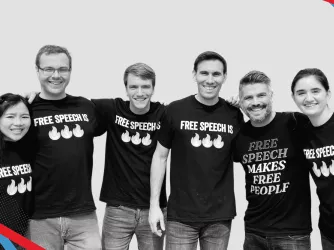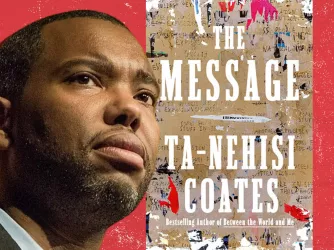Table of Contents
Freedom of Conscience and Faculty Bias
FIRE friend Dr. Roy Poses (who is also a key contributor to an excellent blog about the concentration and abuse of power in health care, Health Care Renewal) makes an interesting point about Ward Churchill:
Assuming that there such faculty are prevalent, then for many students at Colorado a university education may be largely an immersion in the propaganda of the extreme left-wing, absent exposure to many facts relevant to their professors' ostensible academic disciplines, and any instruction in a reasoned approach to these facts. I doubt, however, that such students choose their courses and majors based on a true understanding of the abilities and motives of the faculty teaching them.
In that case, would not such students’ freedom of conscience be compromised? Furthermore, is it not ultimately very bad for society to continue to let a substantial part of higher education be devoted to political propaganda and indoctrination in the guise of serious education and scholarship?
My response: As I discussed in a previous post, our best information indicates that the ratio of Democrats to Republicans in Colorado’s social sciences and humanities departments is greater than 32 to 1. Given such ratios, unless the professors involved are extraordinarily even-handed in their approach, there is a good chance that many students truly are immersed in leftist (or at least liberal) ideology. The question is: does that immersion violate the students’ freedom of conscience?
When I think of freedom of conscience, I think of two kinds of violations. For lack of better terms, I’ll call these violations “hard” and “soft.” A “hard” violation consists of a coercive act of the state that subjects students to explicitly ideological instruction. In other words, the students literally have no choice; they are forced to drink the state’s Kool-Aid. Examples of such “hard” violations include mandatory diversity training, “sensitivity training” as punishment for misconduct, and mandatory first-year orientation programs that teach students the correct way to think about race, gender, sexual orientation, and religion. For a tremendously informative (and disturbing) discussion of these frightening programs, read FIRE Cofounder (and Chairman) Alan Charles Kors’ excellent article, “Thought Reform 101.” For “hard” violations of freedom of conscience, legal remedies may well exist (especially if the program at issue takes a particularly hostile view of religion, as many do). The University of Colorado has not (to the best of our knowledge) committed such a violation.
The “soft” violation occurs not through coercion but through deception. Students are not, of course, forced to major in history, ethnic studies, sociology or any other discipline that has become highly politicized. The problem comes, however, when a department (or a discipline) is dominated by one point of view, and the university does not honestly describe its program or presents its program as providing a fair representation of relevant thought on the subject. A student who studies history from professors who share a single point of view (or slight variations of the dominant viewpoint) will be led to believe that this viewpoint represents, well, history. Thus, the violation of freedom of conscience is subtle. Rather than being coerced, the student is essentially seduced—persuaded to join a program under the pretense that he or she will be learning broadly only to be taught narrowly. It is here that Colorado may be violating the rights of conscience, or—to put it a different way—engaging in “thought reform.”
I want to be clear, however, that legal solutions for such “soft” violations are both elusive and dangerous. We do not want to create a legal structure where students feel they have a mythical “right” not to be offended or challenged. Students do not have that right, and they should not have that right. Instead, we’re asking a larger question: Does the state have the right to tell us that there is a “proper” view of history, anthropology, psychology, English, ethnic studies, etc.? Since the answer is obviously “no,” but since many millions of Americans are beginning to wake up to the reality that their kids are being taught in extremely unbalanced circumstances, America’s universities have a diminishing window of opportunity. They can either reject ideological orthodoxy and embrace a true marketplace of ideas or face a fearsome challenge from lawsuits, legislation, regulation, and other blunt instruments that could forever destroy academic freedom as we know it today. In other words, once the culture realizes that state universities are vehicles for indoctrination, the battle may well be over which ideas will be indoctrinated, not whether the indoctrination should occur in the first place.
So, Dr. Poses, to answer your question, “immersion” in any ideology (especially a state-approved ideology) can implicate freedom of conscience, and “immersion” that is cast as a complete look at a discipline is very bad for universities, for the pursuit of truth and knowledge, and for the country.
Recent Articles
FIRE’s award-winning Newsdesk covers the free speech news you need to stay informed.

How to survive Thanksgiving

Right, left, and in-between: Can we bring our differences to the table?

FIRE is the proud home for those who defend free speech
